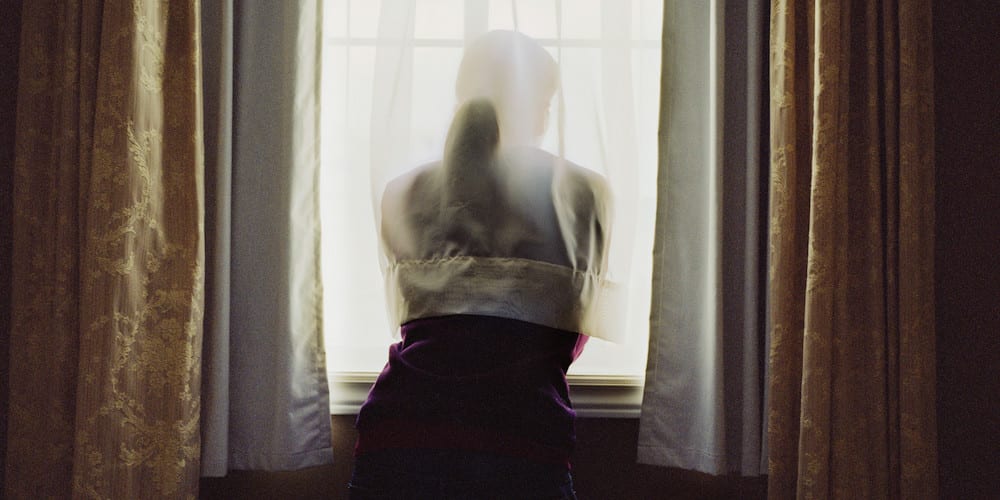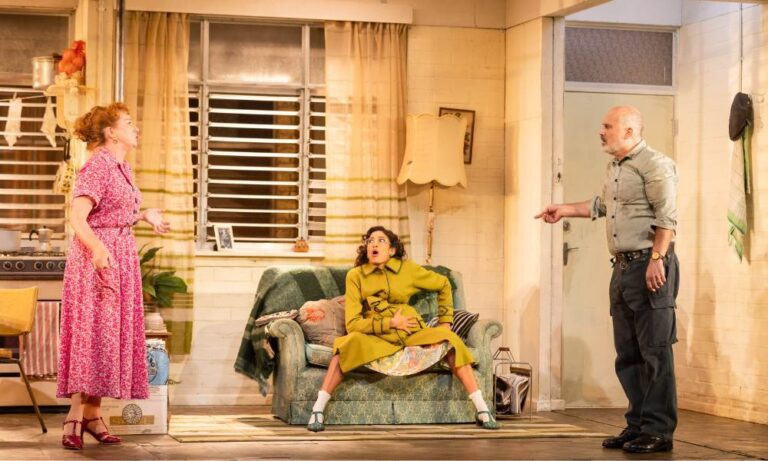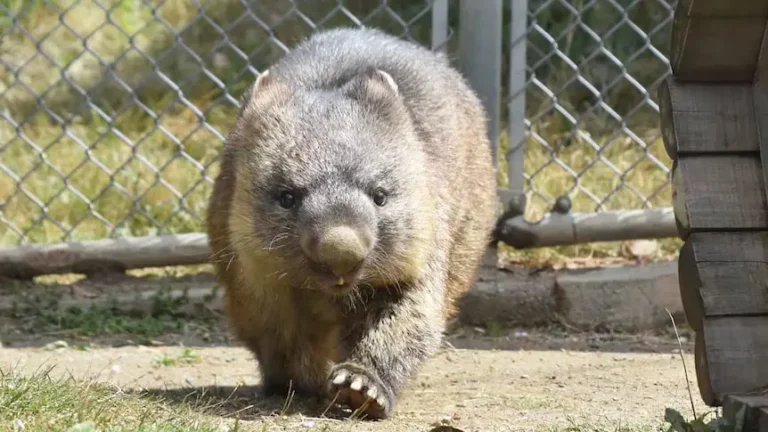I’m a recovering alcoholic. And a mum. When I lost custody of my beautiful little girl, my life began to unravel. I am living proof of what alcoholism and a lack of compassion can cost you.
What a rather humbling thing it is to get to the age of 46 and realise how wrong you’ve had it your entire life. I handed over my phone, and watched as my suitcase was checked for contraband and nail polish remover (yes, some drink it). I stood looking at my single bed in an alcohol rehabilitation centre that was to be my home over the next 30 days. One question I kept asking myself was, “how the hell did I get here?”
My sense of shame was palpable. There was nobody on earth who was lower than me. But digging around in the remnants of my life that remained, I kicked over hope. Hope I would learn how to be a better person. Hope I could get out of the quagmire of struggle my daily life had become, and hope I would get shoulder-tapped by staff to say I didn’t belong there and wasn’t that bad.
That shoulder tap never came, but what did come was the stark realisation I most certainly belonged there. There can be no recovery without searing honesty. There is no substitute in a treatment centre for anything but, so that you can see what you have done to others and how utterly selfish your behaviour is. Getting help with my addiction was the biggest turning point of my life. I had one job to do: to unpick the reasons why I had gotten to this point and to start to stitch a new life together with knowledge.
People who drink too much, lie. Most know they have a problem, but because of the shame that surrounds admitting to a problem, or feeling it is too big to cope with, they just try each day to do the right thing and fail. Alcoholics want to just have a wine or two with dinner, they want to go days without drinking at all and not being bothered by it, and they most certainly want to be remembered at social functions and events for being fun, not for falling over or crying. It just doesn’t happen often. Alcoholics aren’t just derelicts drinking meth in the park. They are people living normal lives, holding down normal jobs while their lives quietly unravel.
In the beginning
My drinking career didn’t really get cracking until I was in my twenties. As a teenager, I didn’t drink much as I was focused on getting into broadcasting school. I took a gap year after high school and worked five jobs to save money. While my friends were discovering drugs and alcohol, I was steadfast in my desire to get into the broadcasting industry. It was once I was working as a radio announcer I began to think I could get somewhat out of control when I drank, but in an industry renowned for its social aspect, I thought that was just normal. Drinking was a weekend activity. However, some nights I would be fine and others I would be high-maintenance.
In my thirties, I met and married my husband and was pregnant quickly, with my daughter. Alcohol wasn’t an issue while pregnant; I was growing a human and that was the most important job on earth. After I became a mum, alcohol had started to become an issue from the point of view that other people had a problem with my drinking, and I knew it was enough of a problem to try and stop. Thus, began the pattern of the next decade of my life. Stopping and starting. The most I ever managed sober was seven months and then, as any alcoholic will tell you, you think you have it licked, so you pick up again. Alcohol is cunning and powerful and it doesn’t take long before you are back at that point where you need to stop again. Belligerence plays a part. “Why shouldn’t I be able to drink?” “Why can’t I drink like everyone else?” The internal battle rages. Only someone who wages this war with alcohol will understand the level of disgust you constantly have with yourself. It’s a full-time job.
The months when I wouldn’t drink should have been enough to motivate me to stay stopped – I love being sober. I achieved far more, my relationships were healthier, I felt less anxiety and I was proud of who I was. Sleep became an eight-hour gift, rather than waking throughout the night hating myself and worrying about things I might have said and done to people under the influence. Sober, you aren’t scared to pick up your phone in the morning for fear of conversations you may have had but don’t remember. It’s never good, often requires fixing and, in some cases, can’t be. Neither should it be. As a drinker, you lose the right to tell someone how they should or shouldn’t react to your bad behaviour. The road to sobriety is paved with broken relationships. Some irretrievably.
My one saving grace was my beautiful daughter. When she was five, her father and I separated and shared the care. The weeks I had her were routine, and short of having the odd few drinks, I kept a pretty manageable lid on it. I also had long periods of sobriety in amongst this, so life just carried on as normal. Being her mother was the best part of my life. I’m from a close family and the weeks I had her were filled with her cousins and grandparents, and she and I doing normal mum-and-daughter things. I worked hard, owned my own home, paid all the bills and wanted to make sure I was a good role model for her. I wanted to give her experiences she would remember. That all came tumbling down, however, when she was 11 and I was 45. When I asked myself “How the hell I got here?”, at The Retreat that Monday night. I had lost my daughter.
The worst decision of my life
I dropped her to school on a Friday morning and went home to continue working – I had started my own marketing business. I stopped for lunch and had two piccolos of bubbly with my toasted sandwich, then carried on working. I then had a quick power nap, missed the call from the school and was late to pick her up. Was the decision to have those two drinks the worst decision of my life? Without a doubt. Do I hate myself for it? Yes. Did the punishment fit the crime? I wouldn’t have thought so. What followed has been a nightmare of epic proportions due to incorrectly followed procedure in the family court – at every turn.
My family and I have never had her from that day 18 months ago, and my precious daughter no longer wants anything to do with us. I wasn’t allowed to visit her without supervision and my parents have been stopped from seeing her, too. She has been cut off from 50 per cent of her life by her father. Two drinks on that day or not, I have to own the fact that if I didn’t have a history of a drinking problem, I would still have her. Sobering indeed, and sober was what I was for most of the process that ensued, which cost me my home, $20,000 in lawyer’s fees and, temporarily, my happiness.
There were signs this was coming. Her father would try to control what I put in my daughter’s lunch box, the shoes she wore and who I let her see while it was my week with her. He wouldn’t allow her to attend any of my family functions or special events if they happened to fall while he had her. I bought her a mobile (just for texting) and she wasn’t allowed to use it at their home. These things may seem small, but they were the telltale signs of parental alienation I wasn’t aware of.
The sense of loss I feel is ever-present. There is nothing more cruel than grieving for a child who is still alive. Once it became clear I wasn’t going to get her back, I drank to cope with the ferocity of the feelings. It’s very difficult to explain to people why you don’t have your child anymore. Even if they are understanding to your face, you know some think “there must be more to it than that”. In this case there wasn’t.
Sending an SOS
Well, there is more for me now and that is sobriety. I got to the stage where I was sick of myself, my horrible, sad, dependant, selfish self. It was when I was starting to feel suicidal I knew I had to get help. I rang a close girlfriend and my family with an SOS call and they found me The Retreat in Auckland. What use was I going to be to anybody if I didn’t get myself straight? It hasn’t been easy. In fact, there were times in treatment when I would hear how other parents had behaved as drinkers and yet still had their children. I would feel aggrieved. However, all I can do is own all I have done and work at being the best person I can be. I would like to hope that one day my daughter is able to understand the disease of alcoholism without judging. I am living proof of the cost.
Taking responsibility
During my 30 days in treatment, I slowly picked apart the layers and gained an understanding of my role in my own life. It’s very easy when you have had a traumatic experience, like losing custody, to want to blame, but I began to understand I was responsible for my own actions and only I could fix things moving forward. It was an extremely structured environment. Each day started with meditation, which I initially found impossible to do without crying. Learning to live with my own silence was something I had spent my life avoiding. By the end, I craved it. I also learned about just being a better person and am so grateful that, in the right environment, I could start to learn how to fix what I had inadvertently broken throughout my life, through choices marinated in too much alcohol.
The relief my loved ones feel is palpable. I hadn’t realised how much pressure I had put them under. My relationships are now honest and real. It is a very big relief. Sometimes, however, you have to let things go. During this process I have lost a friendship with a precious girlfriend – it was too unhealthy for us both. I learned this during treatment. However, this pales into insignificance compared to the loss of my daughter.
My life is different now. I do what I was taught in the 12-step recovery programme, where I have to feel every uncomfortable feeling and not dull the ache with alcohol. That has been the hardest part. Feelings by their very nature can be confronting, but at least now they are authentic. I was a lovely mum and I miss my girl so much some days I want to scream. Hell, I do scream, but now I will continue to try to let her know we all love her, as a sober mum. Sobriety is a small price to pay if it means one day we have her in our lives.







